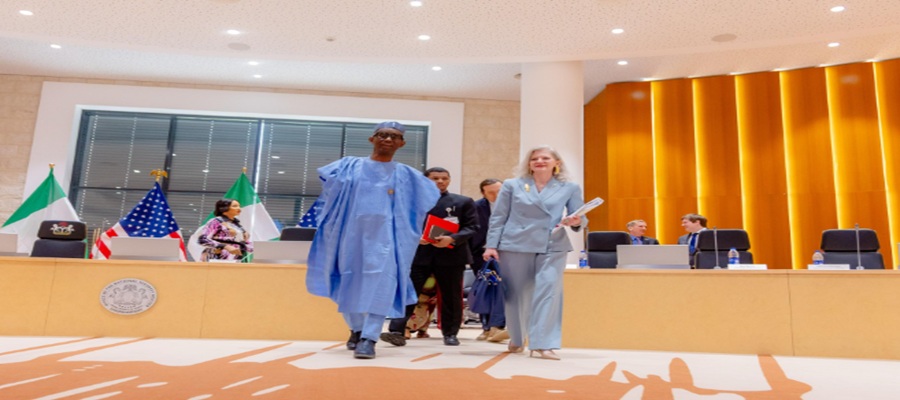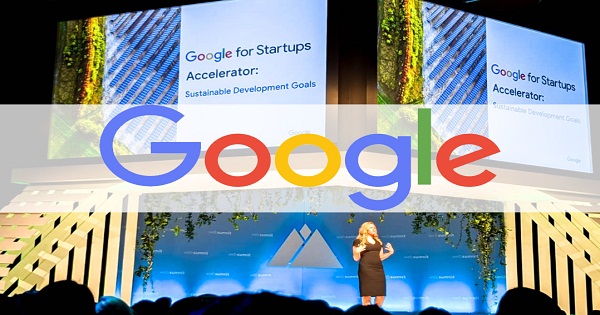General News
Experts Predict $120B in Global Spending on Security Products, Services By 2021

By peter oluka
Worldwide spending on security-related hardware, software, and services is forecast to reach $119.9 billion in 2021, according to a recent update to the Worldwide Semiannual Security Spending Guide from International Data Corporation (IDC).
With nearly every industry investing in security solutions to meet a wide range of threats and requirements, spending is expected to achieve a compound annual growth rate (CAGR) of 9.6% over the 2016-2021 forecast period.
Worldwide spending on security products and services will total $83.5 billion in 2017, an increase of 10.3% over 2016.
“Three overarching trends are driving security spending: a dynamic threat landscape, increasing regulatory pressures, and architectural changes spurred by digital transformation initiatives,” said Sean Pike, program vice president for IDC’s Security Products and Legal, Risk, and Compliance programs. “While IDC expects spending to continue growing, organizations are actively searching for product and service efficiencies that maximize spend in order to fully address such complex challenges.”
IDC expects security spending to be somewhat evenly spread across four industry sectors in 2017: distribution and services ($19.7 billion), public sector ($18.6 billion), manufacturing and resources ($16.4 billion), and financial ($16.3 billion).
By 2021, however, the financial sector is forecast to move ahead of manufacturing and resources due to a 2016-2021 CAGR of 10.2%. Similarly, public sector security spending will nearly pull even with distribution and services by 2021 with a CAGR of 10.3%. The fastest growing sector over the five-year forecast period will be infrastructure with a CAGR of 11.8%.
“Ever-changing security threats, fear of data breaches, and regulatory compliance will continue to drive security investments across all industries,” said Eileen Smith, program director, Customer Insights and Analysis. “On a global basis, banks, discrete manufacturers, and federal/central government agencies will spend the most on security products and services throughout the forecast. Combined, these three industries will contribute to 30% of the worldwide total spending in 2017.”
In addition to being among the industries spending the most on security solutions in 2017, federal/central government and banking will be two of the industries that will see the fastest growth in security spending over the five-year forecast, with CAGRs of 10.9% and 10.7%, respectively. The industry that will see the fastest growth is telecommunications, with a CAGR of 12.6%. This growth will enable telecommunications to become the fourth largest industry in terms of total security spend in 2021, moving ahead of the process manufacturing and professional services industries.
More than 80% of security spending in 2017 will go to services and software. Services spending will be led by two of the largest technology categories – managed security services ($15.25 billion) and integration services ($12.5 billion). Software spending will be focused on three categories – endpoint security, identity and access management, and security and vulnerability management – that will make up more than 75% of the software total this year.
Hardware spending will be significantly smaller throughout the forecast, dominated by network security solutions ($13.7 billion in 2017).
In addition to being the two largest technology categories, managed security services and network security will also be the fastest growing categories during the 2016-2021 forecast with CAGRs of 14.3% and 11.4%, respectively.
The largest market for security products and services on a geographic basis will be North America with total spending of $37.8 billion this year. The second largest geographic market will be Europe, the Middle East and Africa (EMEA) at $26.2 billion followed by Asia/Pacific (excluding Japan)(APeJ) at $11.5 billion.
APeJ will see the fastest growth in security spending over the forecast period with a five-year CAGR of 19.9%. Within the region, China and Malaysia will see particularly strong growth with five-year CAGRs of 25.3% and 20.1%, respectively. Latin America is also expected to outperform the overall market with a CAGR of 10.4%.
From a company size perspective, large and very large businesses (those with more than 500 employees) will be responsible for roughly two thirds of all security-related spending throughout the forecast.
IDC also expects very large businesses (more than 1,000 employees) to pass the $50 billion spending level in 2019. Small and medium businesses (SMBs) will also be a significant contributor to BDA spending with the remaining one third of worldwide revenues coming from companies with fewer than 500 employees.
The Worldwide Semiannual Security Spending Guide quantifies the global revenue opportunity for both core and next-generation security purchases.
The guide offers detailed forecast data for security spending by 20 industries across eight regions and 53 countries.
Unlike any other research in the industry, the comprehensive spending guide was designed to help IT decision makers to clearly understand the industry-specific scope and direction of security-related spending today and over the next five years.
General News
Nigeria Treats Religious Violence as Attack on State – NSA Ribadu

National Security Adviser Nuhu Ribadu has said the federal government considers religious violence an attack on the Nigerian state, stressing that the protection of all citizens, regardless of faith, is non-negotiable.

According to presidential spokesperson Bayo Onanuga, Ribadu made the remarks in Abuja at the close of a US–Nigeria Joint Working Group session.
“Nigeria is a deeply plural society, and the protection of all citizens, Christians, Muslims, and those of other beliefs, is non-negotiable,” Ribadu said.
“Violence framed along religious lines is treated as an attack on the Nigerian state itself.”
In a follow-up post on X, Ribadu said the joint working group has recorded “tangible operational gains” in the fight against terrorism.
The working group was set up following Nigeria’s designation as a Country of Particular Concern (CPC) by US President Donald Trump, a label that often triggers policy actions aimed at ending severe violations of religious freedom.
At the meeting, Ribadu led Nigeria’s delegation, which included representatives from 10 ministries and agencies, while the US delegation, made up of eight federal agencies, was led by Allison Hooker, US under-secretary of state.
Ribadu said Nigeria-US security cooperation has moved from dialogue to action, resulting in the disruption of terrorist networks and transnational criminal groups. He also praised the US for supplying drones, helicopters, platforms, spare parts, and other support systems over the past five years.
Speaking at the session, Hooker said the US was committed to expanding its partnership with Nigeria, particularly on deterring violence against Christian communities.
“Today, we are here to discuss how we can work together to deter violence against Christian communities, prioritising counter-terrorism, insecurity, investigation of attacks, and holding perpetrators accountable,” she said.
She added that efforts would focus on reducing killings, forced displacement, and abductions of Christians, especially in Nigeria’s north-central states
General News
PalmPay User Shares Experience on Fintech Apps to Trust in Nigeria

For many Nigerians, fintech apps are judged by one simple question: Can I trust the platform? For Happiness, a young Nigerian entrepreneur, the answer manifested in the most defining moments of her life.

Trust Built Through Everyday Use
In 2025, Happiness relied on PalmPay to run her business, from receiving customer payments, paying vendors, and managing daily transactions. During PalmPay’s Hustle Grant Campaign, she joined thousands of small business owners hoping to win the N500,000 funding.
While she didn’t make the shortlist, the campaign gave her business something just as valuable: visibility. New customers discovered her brand, enquiries increased, and sales followed.
PalmPay didn’t just host a campaign; it created an ecosystem where small businesses could be seen and supported.
Just days later, Happiness’ life changed. On August 30, 2025, she lost her father. With this loss came challenges, especially payments. They tried transferring money through regular banks but were met with declined transactions. Happiness suggested using her PalmPay account and it was successful.
In a moment defined by loss and urgency, PalmPay cut through the chaos, proving that reliability isn’t a feature, it’s a lifeline. Happiness’ relationship with PalmPay didn’t stop at transactions. Through other management tools on the app, she learned to build discipline around her finances.
More Than an App, a Financial Partner
Beyond transactions, PalmPay’s tools helped Happiness build better money habits and financial discipline. Today, the brand continues to reward reliability through initiatives like its ongoing Premier Cool campaign, reinforcing a simple message: consistency should come with value.
The idea is simple: Purchase a bar of soap and stand a chance to get ₦10,000cash and other cash benefits.
It’s PalmPay’s way of saying that smart money habits deserve real value in return.
Why PalmPay Earns Trust
Life doesn’t give warnings before it tests you. When it does, you need a platform that doesn’t just usually work but always works.
For many users, PalmPay proves to be more than a payment app. It is a trusted partner powering ambitions, supporting users through defining life moments, while helping them bank smartly.
When it mattered most, PalmPay worked. To watch the full testimonial visit: @palmpayapp_ng
General News
Nigerians Target Self-Improvement, Business Startups in 2026 Google Data

Google Search data from the first two weeks of 2026 reveals Nigerians are prioritising ambition, self-growth, and entrepreneurial ventures as they embrace the new year with renewed drive for personal and professional excellence.

The data shows a 40 per cent spike in searches related to self-improvement and “becoming better”, reflecting a nationwide shift from mere resolutions to actionable plans across boardrooms, classrooms, and homes. Entrepreneurship leads the charge, with “how to start a business” topping “how to start” queries after an 80 per cent surge, alongside rising interest in blogging, podcasting, and YouTube channels to foster economic opportunities.
Personal development dominates, as searches for “how to be a better person” rose 20 per cent, extending to relationships with queries on becoming better lovers, partners, husbands, wives, and listeners. Health resolutions gain traction, with 40 per cent increases in “how to eat healthy”, “healthy diet”, and “how to meditate” underscoring commitments to physical vitality and mental wellness.
Skill mastery captivates diverse audiences, from “how to improve English” and communication skills to enhancing memory, credit scores, and even handwriting, while leisure pursuits spike in “how to get better at” chess, singing, running, Fortnite, and soccer. Top searches include “how to improve communication skills”, “how to be a better listener”, and entrepreneurial starters like “how to start a podcast”, painting a portrait of a nation honing edges for success.
Taiwo Kola-Ogunlade, Communications and Public Affairs Manager for West Africa at Google, described the trends as a “powerful reflection of Nigeria’s collective ambition”, affirming the company’s dedication to tools like Search and Gemini for guiding Nigerians toward prosperity

 General News3 days ago
General News3 days agoPalmPay User Shares Experience on Fintech Apps to Trust in Nigeria

 News3 days ago
News3 days agoStakeholders Demand Stronger Governance and Infrastructure to Drive Tech Adoption @ Lagos AI Summit

 General News3 days ago
General News3 days agoNigerians Target Self-Improvement, Business Startups in 2026 Google Data

 News3 days ago
News3 days ago35 Million Nigerians Face Acute Hunger in 2026, UN Warns

 General News3 days ago
General News3 days agoHow Inside Jobs and Policy Shocks Trigger Nigeria’s Rising Loan Crisis

 E-Financial19 hours ago
E-Financial19 hours agoFirst Asset Management Receives Upgraded Ratings from Agusto &Co and DataPro

 News19 hours ago
News19 hours agoAnambra Cuts Monday Pay to Kill Sit-at-Home

 General News19 hours ago
General News19 hours agoNigeria Treats Religious Violence as Attack on State – NSA Ribadu

























